A few days ago some news made the rounds about a man named Tony who edited some early Legend of Zelda games to leave Link’s gender unstated. Later, Tony contacted me out of the blue asking about the text in the Japanese games:
I made some gender-neutral patches for the English version of TLOZ and ALTTP for my daughter to play Link as herself without the characters in the game calling her a boy and it’s caused quite a stir online…
What’s your take on this? From your analysis, it looks like the use of the word “boy” in TLOZ (“boy, you’re rich”) was meant as an exclamatory “wow”. But what about all of Link’s male pronouns used in the English translation of ALTTP? Did the Japanese version of ALTTP also use the same gendered language when referring to Link?
Some folks have also pointed out the English instruction manual for TLOZ used several male pronouns when referring to Link. Did the Japanese instruction manuals do the same?
The quick answer is: Link is indeed identified as a boy in the Japanese versions of Zelda 1 and A Link to the Past. There’s not much more to say beyond that, but if you have an interest in translation and language differences, then this article is for you.
On an interesting side note, a few months after I first posted this article, Zelda producer Eiji Aonuma mentioned in an interview that he wanted Link to be gender-neutral during Ocarina of Time’s development.
Japanese Pronoun Usage
At first, it might seem silly to ask about pronouns in these old Japanese games, but there are actually some good reasons for it:
- Pronouns are used far less frequently in Japanese than in English – instead, you can usually just restate the person’s name every time, or leave out names and pronouns entirely if it’s clear who’s being referred to
- Many Japanese pronouns are also tied to gender and identity, so whatever pronouns do get used in a game or elsewhere can say a lot about a person
Basically, because Japanese pronouns work so differently from English pronouns, there’s a lot that can be lost, added, or changed in translation.
Link in the Japanese Version of Zelda 1
First, let’s start with the Zelda 1 question. It’s true that the “boy” in the line “Boy, you’re rich!” isn’t referring to a male child but is just a phrase of surprise. In Japanese, she says something like “You sure are rich!”
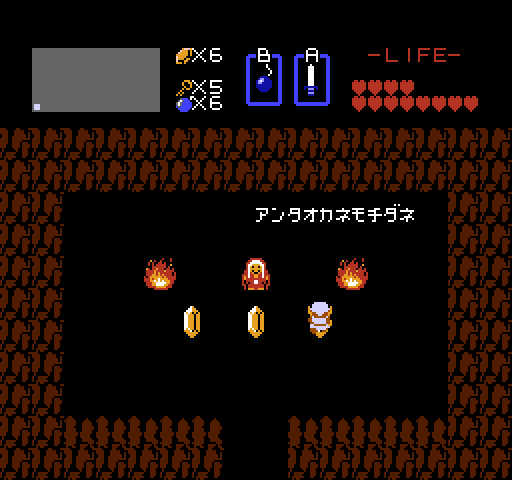 | 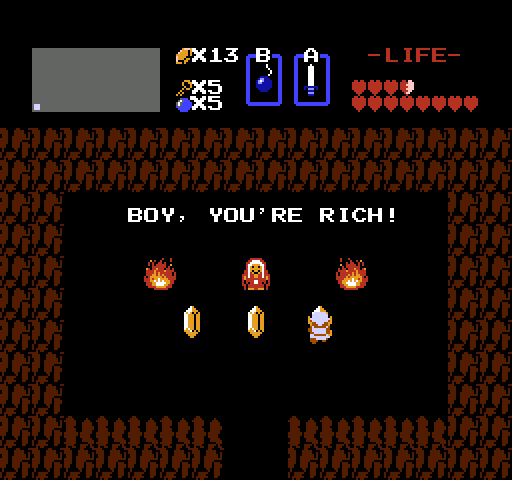 |
| Legend of Zelda (Famicom Disk System) | The Legend of Zelda (NES) |
The Japanese manual does refer to Link using pronouns, however:
![English translation: "Just then, a lone boy appeared, skillfully confused the minions, and rescued Impa. His name was Link. [...] Impa told him the entire story."](https://legendsoflocalization.com/wp-content/uploads/2016/02/zelda-nes-link-boy-manual.jpg)
From this, there’s no doubt that Link is a boy in the first Zelda game.
- English Manual: 70+ times
- Japanese Manual: 3 times
Link in the Japanese Version of A Link to the Past
Tony also asked if the Japanese version of the third Zelda game ever mentioned Link’s gender.
Interestingly, this game’s box and manual no longer refer to Link with male pronouns. Instead, they only use the words “you” and “the player”:
At first, this gave me the impression that maybe the developers wanted Link to be a “blank slate” for the player, especially given that you get to assign the name that everyone calls the main character throughout the game.
After quickly skimming through the Japanese game’s text, I didn’t see any of the main male pronouns referring to Link, which led me to think the blank slate idea was solid after all. But I then discovered that there are three or so places in the game when Link is referred to as a boy:
So despite my initial assumptions, there’s no question that Link is intended to be male in the Japanese version of A Link to the Past.
Final Thoughts
We haven’t discovered anything terribly new or surprising in this article, of course, but I feel it’s been a good way to show how pronouns work differently between Japanese and English using real-life examples. It’s also been neat to see how a single game, released in two different languages, can provide players with slightly different information and experiences.
Incidentally, if you’d like to play the Japanese versions of Zelda 1 and A Link to the Past and analyze the translation differences for yourself, see my custom emulator tools here:
Even if you know very little (or zero) Japanese, the Zelda plugins include translation notes and automatic dictionaries.
For more Zelda-related translation and localization stuff, see my other articles here!


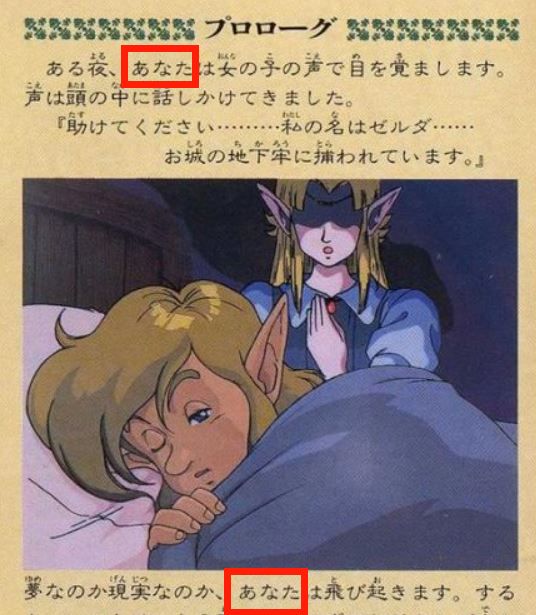

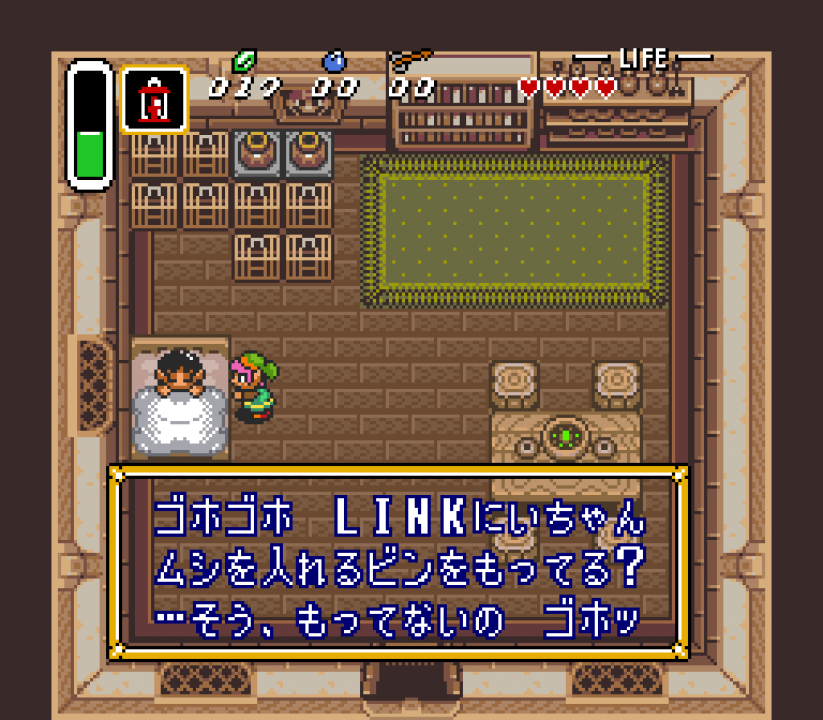


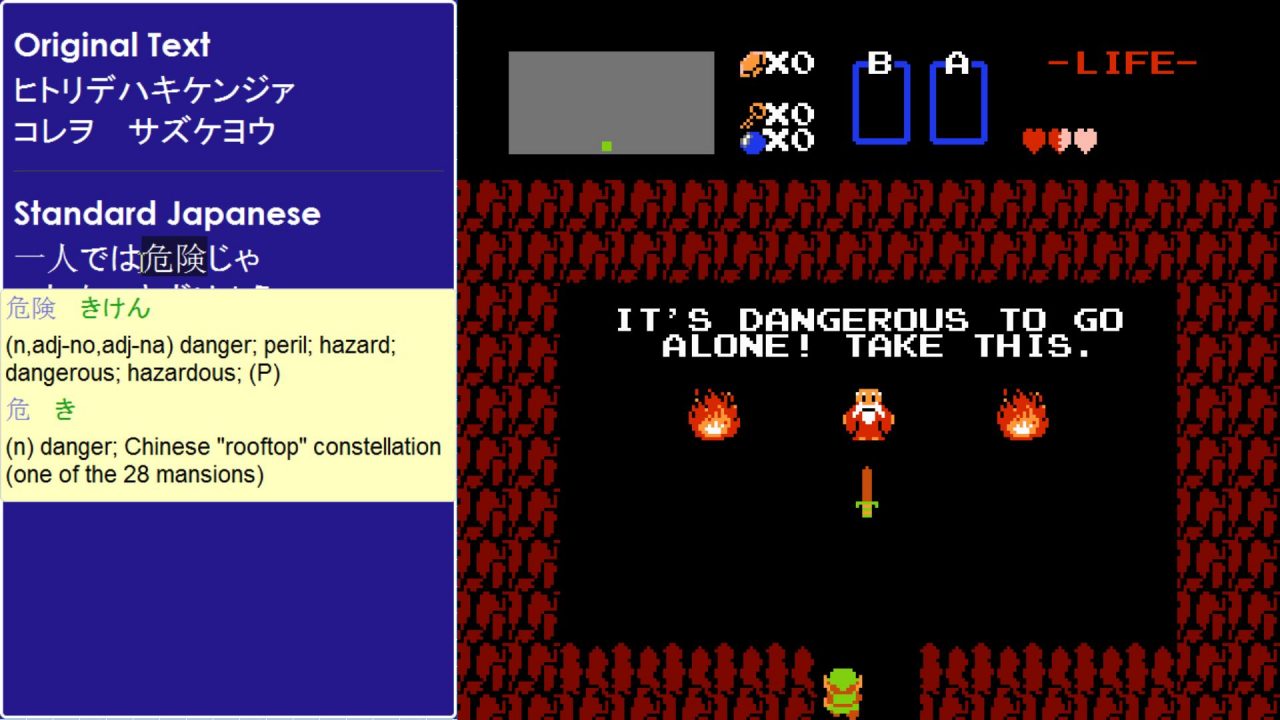
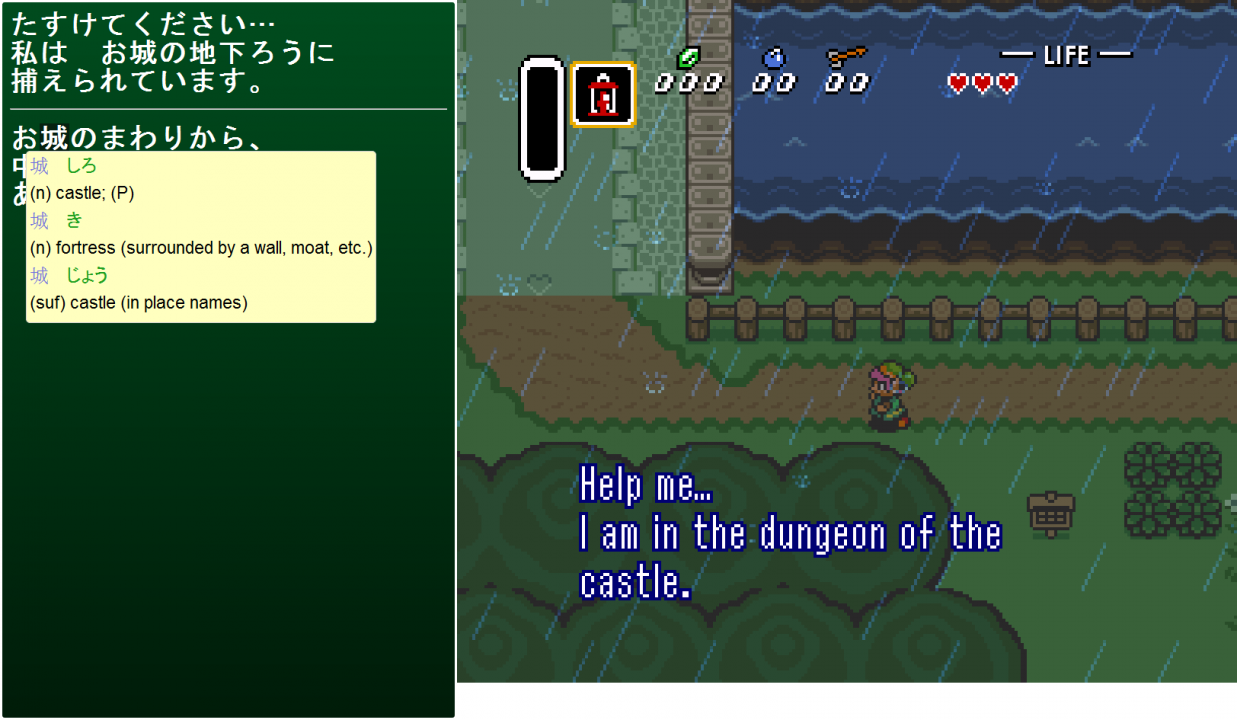
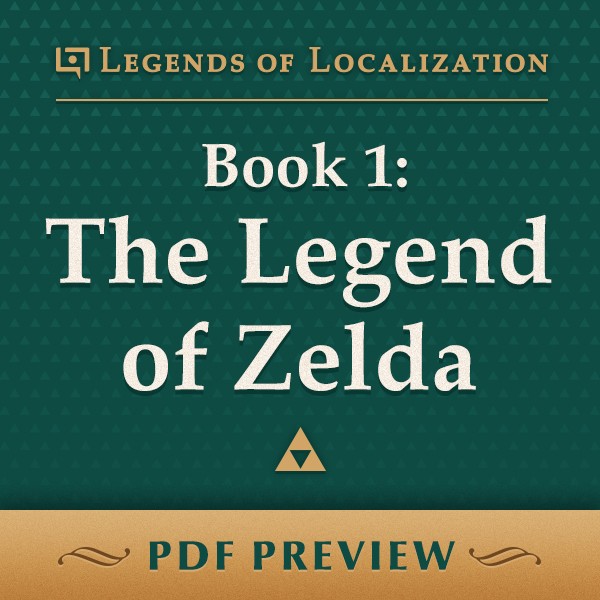
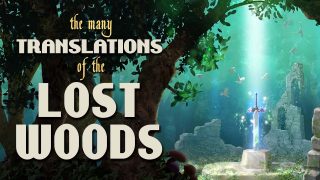
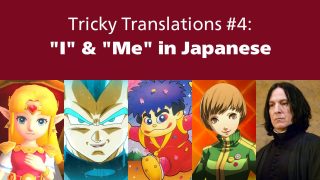
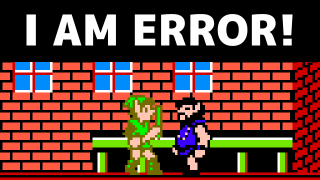
So you can think of Link from ALTTP as female, that’s neat. I guess Tony is happy with these news.
Cool stuff. I can’t believe that people are getting upset about this sort of stuff online.
Having been on Tumblr, I can. 😛
This really doesn’t have anything to do with Tumblr…?
Even going by (hilariously inaccurate) common Internet narrative that Tumblr is some kind of post-apocalyptic leftist hellscape where the walls ooze feminism, that’s the opposite kind of weirdo than the ones who get offended by the creation of gender neutral and/or female patches for video games.
If you want my personal observations on the situation, that part of Tumblr is mostly nihilistic teenagers some of which are misguided but most of which are tired, and the most offended people on the internet are ones who go into a blind rage when they hear the word “tumblr”. Hahaha.
…for real though, it’s bizarre AND believable that people would get mad. That’s kind of the state of things right now. There’s tons of video game controversy, but it’s all stupid.
Those who are getting upset probably because they feel as though people are forcing their ideologies onto and/or into video games.
I don’t understand this obsession with the gender of characters having to agree with those that play them; Link is male, Samus is female; just play and enjoy the games.
It’s interesting that the manual to Triforce of the Gods seems to imply that its “Link” is an entirely different character from the original Link, to the extent that his canon name isn’t necessarily Link at all. Doubly interesting if the same holds true for The Dreaming Isle / Link’s Awakening. It’s as though “Link” was originally considered – in Japan, at least – to be the moniker of the hero of the first game only. Imagine a world where the various heroes of the Zelda series aren’t all named Link!
Also – I noticed a sneaky “EarthBound Zero” in the mouseover text for the second Triforce of the Gods manual scan. Aren’t we calling it “EarthBound Beginnings” now? 😉
Haha, yeah, as I was typing that I was like “someone’s gonna point that out” but I went for it anyway 😛
I wouldn’t be surprised if that was the case.
It’s implied via various Zelda games (and confirmed in Skyward Sword) that the various Links throughout the series are actually reincarnations of the Spirit of the Hero. Who says reincarnations had to have the same name as each other?
both “Beginnings” and “Zero” are heathen references to the inferior prototype translation, you fool! you foolish incarnation! [its a joke]
“The setting this time is an era long before Link’s feats, when Hyrule was still a single kingdom.”
Thanks for translating that first line on the box. It fits in with the manual’s perspective of calling the hero “you”, with the back on the box refering to the character Link from the NES games. When I was researching Zelda info for fansites years ago, 3 translators translated that line to confirm that the Japanese box for ALttP also refers to itself as a prequel to the previous games.
“A very long time ago, before Link`s activities this time, Hyrule was still one (unified) kingdom.
. Run, hit, carry and throw. Push, pull, swim, and wave a sword…
In the kingdom of Hyrule, freely run about as it pleases you. When you get the golden power “Triforce”, you can become the legendary hero.”
“This time it takes place long before Link took part in something, during a period when Hyrule was still one (unified)
/
The stage is set in the period when Hyrule was one country, long before the actions of Link.
Kingdom. Run, crash, carry, throw. Push, pull, swim, swing your sword…. In the kingdom of Hyrule move freely. If you get your hands on the golden power of the “Triforce” will you become a legendary hero?”
“This act (note: as in a play) takes place once upon a time before when Link flourished, an era when Hyrule was still but one kingdom.
Run, strike things, carry things (note: also can mean “do tricks”), and throw things.
Push things, pull things, swim, and swing your sword…
Run all around Hyrule freely, and when you get the
Power of Gold, the “Triforce,” in your hands, you can become the Hero of Legend.”
(The previous game in the series, Zelda II: The Adventure of Link, had Hyrule across 2 continents, with ALttP’s box saying the game takes place when Hyrule was one kingdom, and before the actions of the hero character, Link)
Link’s Awakening also refers to Link as “you”, and both manuals for ALttP and Link’s Awakening were written by Yoshiaki Koizumi.
http://www.wired.com/2007/12/interview-super/
Maybe its a left over from Miyamoto’s original plan to have a 3 party system, since it didn’t necessarily sound like the hero would be Link.
http://www.glitterberri.com/developer-interviews/miyamoto-horii-discussion/
“Link” was the character from the first two games on the NES, and now you’re the new hero whose also “Link”. I think Dragon Quest did something similar where in DQ1 you’re the descendant of the hero Loto/Erdrick, and in DQ3 you find out you played as hero Loto/Erdrick.
Cool, I’m glad I could help in some small way. I hadn’t realized that that was a line under scrutiny of its own, but I can understand why now that I think about it. Actually, for the longest time I always though the “this game is a prequel” idea was just created for the localization, so I’m glad to see that it was that way all along.
Wow… this is quite the stunning news. I really do hate how we almost have to pick a gender in English: I’d much rather not be pegged down as either male or female. (If you must, I do prefer female pronouns).
So, what this article basically says is that Link’s gender, in Japanese releases, comes down to basically a few sentences in a handful of games before internationalisation (and possibly Ocarina of Time) happened. I wonder if anyone who hadn’t studied the manuals intensively or such ever actually thought Link was a girl.
Yeah, whenever I analyze stuff like this I always try to check the game, the manual, the box, and whatever else might’ve come with the game during a purchase. But with things like used games and downloadable games (both modern and Japanese Nintendo Power-style) it’s totally possible for players to never see the game’s artwork and supplemental text, meaning a lot could be lost on some players. I can totally see people making assumptions about characters that turned out to be wrong, simply because of missing manuals and such.
Oh please, what is it with this transgender identity nonsense anyway? If anything, this crap is what’s ruining society.
The mouseover text had just my exact thoughts when I noticed the Earthbound reference, guess we need to update the Hyrule Historia XD
Also, dat commercial…I never get tired of it…
Coincidentally I wrote a similar sort of article on EarthBound Central a while ago that featured the same scan from this Zelda game 😛 http://earthboundcentral.com/2011/03/ninten-isnt-exactly-ninten/
Where does the japanese commercial fit on the timeline Mato plz
I did some research and it takes place before the events of this key moment in the series
The Satellaview exclusive Zelda games are somewhat related to this topic, seeing as how you could choose your character’s gender in the BS-X town.
Yep! I had considered touching on that topic but I was worried that it might veer too far away from Tony’s question.
A fine example of why the “pronoun game” is one trope that does not work in Japanese, and why Japanese media that conceals the gender of a character in dialogue can be so hard to translate into practically any other language. If you think it’s hard to pull such ambiguity off in English, you should see how tough that is in one of the romance languages like Spanish. Those languages have gendered verbs, making ambiguity of that variety borderline-impossible.
Yeah, whenever the topic of pronouns in J->E translation comes up I’m so grateful that we don’t have gendered verbs and such. I can’t imagine how difficult it is to handle things when someone’s gender is supposed to remain unknown, like in mystery games/stories. That’s a topic I’d love to explore someday.
The German language would like to say “hello”.
Words relating to specific people are, generally, made feminine with an -in suffix and carry the feminine gender. These include “professor”, “neighbor”, “student” and so on.
Words that refer to nonspecific people carry a grammatical gender based on (if anything) the word’s terminal sound. This includes words such as “Woman” (which is neuter) and “virgin” which is always female even when referring to a male. “Child” also is gender inspecific.
Concealing a gender would we simple if you can use a word like “child” or another word for nonspecific people because they have genders independent of the people they describe and the adjectives are happy so long as they reflect the noun’s gender.
You pretty much just described almost any Indo–European language.
Also, do you seriously believe it’s noteworthy that the word “child” is gender-neutral?
Nonsense! Spanish does not have gendered verbs, nor does any other Romance language I’m familiar with!
In Italian, verbs that take ‘essere’ (to be) as an auxiliary have their participles agree with the gender & number of the subject.
e.g. sono arrivato = I (male) arrived
sono arrivata = I (female) arrived
I imagine that Spanish is most likely similar.
Spanish past tenses never use the verb “ser” (to be, “essere”) as the auxiliar. 😉
“Sono arrivato” is “he llegado” (‘ho arrivato’) in Spanish, just like it happens in several dialects of Southern Italy (like Sicilian). The past participle MUST NOT change, it would be an error to decline it.
Of course, in Spanish too the passive form of any verb would still require to specify a gender.
But, since the simple past never uses the “to be” auxiliar, it is indeed easier to conceal one’s gender in Spanish than in Italian or French, albeit only slightly.
A few of the young villagers in the game call you brother and older brother in the Japanese version. Maybe “buddy/bro” is a more appropriate translation for にいちゃん and おにいちゃん in this context? The “sick bug-cathing net boy” and the young kid outside the village shop greets you in that manner. Perhaps a common friendly greeting in Japan no matter the gender?
Just noticed from your comparison that they tweaked the face icon slightly between versions.
Excellent, thank you! I’ve updated the article with an example screenshot, translation, and TLDR.
And here I thought it translated to brother or buddy. It shows how much I know of the Japanese language. 🙂 Glad it helped!
Well, I think that’s how it’s being used here. To my understand, Japanese allows you to use certain terms for relatives (big brother, grandma, aunt) on complete strangers who are around the right age for it. So this guy is calling Link “big brother” because Link’s an unfamiliar young man.
Ah, thanks. So my assumptions weren’t wrong after all. I think I became a bit confused by Mato’s translation choice. Lack of sleep, makes perfect sense now. 🙂
Yeah, it’s not a singularly translatable word, I was originally gonna go with “dude” for the example screenshot. But in English it’s becoming more common for that to be not just for guys, so I opted for the clearer “boy” for the purpose of clarity here.
Yes, it was just me being a little dense. Interestingly, the official English translation mostly went with “kid” and actually at one point “brother” when faced with the suffix.
Never given it a thought before but regarding the name of the hero, in the first game, Zelda always thanks “Link” no matter what you name your file. But, I guess they didn’t want the princess to thank Zelda with the secret naming code that was included.
Whoa, your’re right about the face icons, I never noticed that before 😯
Why are the Japanese so afraid of gender anyway? Do they think everyone born in the world can be both male and female?
What do you mean? If you’re referring to identifying people in language, I don’t think think they’re afraid of gender, since there are personal pronouns that suggest that the speaker is male or female. “Ore” is something that male calls themselves, and “atashi” is something that women do. Although I hear that this sort of language is falling out of favour by Japanese people today, making things more gender-neutral.
In terms of referring to other people, I think Japanese politeness just favours using people’s names or title instead of pronouns, so stating their gender ends up being avoided because of that.
Sorry but no. I know about the personal pronouns they use when speaking, but that isn’t what I meant.
it’s watashi and it’s way more complicated and unnecessary than that. Japanese is actually a language that can benefit from change to remove sexism, unlike every other language ever!!!
No, “atashi” is not exactly the same as “watashi”. “atashi” is feminine whereas “watashi” is more gender-neutral.
Sassysaido, people can’t understand what you’re asking if you don’t explain what it is you’re talking about.
I was being pretty clear. The Japanese sometimes create characters they don’t apply a gender to when they put them in media. It’s like they don’t want to say “that guy” or “that woman” and deliberately avoid it. They’re big fans of androgynous creations.
You’re annoying by the way, hiding behind “Anonymous”. You have no right to be telling me I’m wrong if you’re going to assume a generic identity.
Well, this indeed proves us that Link as canonically applied as a name goes to the protagonist of the NES games. At least in the Japanese side of things…
If I recall correctly, both Twilight Princess and A Link Between Worlds have your game files already named Link as an option when you begin a new game. A matter of convenience of course but still it suggests a canon name…
The hero is also clearly named Link on several occasions in the Japanese manual to Ocarina of Time. So, no he has been intended with that name in more than two games.
Alright. So, the Link who appears in the NES games, Ocarina, Princess and Link Between worlds has Link as it’s ‘canon’ name then.
If one wants to imagine the character as a girl in Zelda 3, the “にいちゃん” part could be interpreted as just a reference to the ‘outside appearance’ of the character (just like Kino in the series linked in the article). Take a stroll in a big Japanese city (especially Tokyo) and try to identify the gender of fashionable young people on the spot. It is sometimes surprisingly hard. No wonder some old shop owner can get confused. 😉
About the name Link and his legend, I seem to remember that Miyamoto-sensei once said that he called the character ‘Link’ because this was the link between player and the game world. In this sense the player was really meant to stand in for the player in any way. Some dialog-writers may got carried away with their interpretation, though. Also I understood Zelda as a saga where every iteration a new hero is born to fight evil again. But I have no (web-)links at hand as a prove.
Now, this strictly isn’t related to this topic at hand so apologies in advance. Good? Now then, I have been thinking about how they should localize Undertale for the japanese audiences. It would go without saying really that Sans would use Kana exlusively. Well, most of the time at least…
Sorry but no, and I know all that. That isn’t what I meant though.
What does this have to do with anything?
No, Japan doesn’t extensively use extensively that indicate sex.
I just imported the Japanese “Link to the Past”, and I found another instance of “niichan”. Actually, it was a use of “oniichan”, and it’s used by the boy who tells you where Sahasrahla is hiding.
i had read one time somewhere (hopefully somebody could look it up if i am wrong) that the creators of the game, could have been Miyamoto himself, that the word “link” was intentionally used. just like the manuals and boxes say: you’re the hero, and link is the link between you and the game.
As someone who knows japanese, I find It incredibly dishonest that you completely ignore the fact a lot of information is implicit in Japanese and only understood through context.
Not saying He/Him constantly does not imply they were trying to keep him gender neutral.